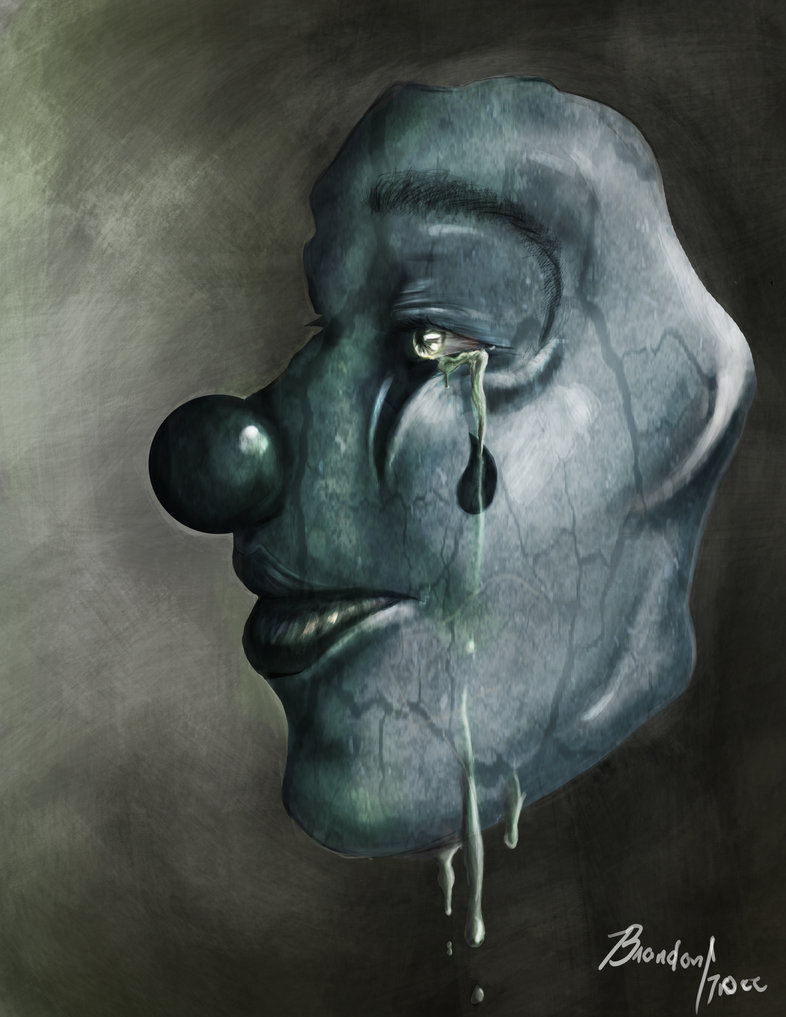“The happiest clown hides the deepest pain.” ~ BrotherWord
Over the past two days, many continue to mourn the passing of Robin Williams. A comedic genius whose artistry spanned generations and garnered the respect and admiration of his peers, Williams was battling a fierce demon – depression. Many underestimate the complexities of depression and how debilitating the effects can be psychologically, emotionally, and physically.
A mood disorder that causes a persistent feeling of sadness and loss of interest, depression affects how a person feels, thinks, and behaves. When at its worst, major depressive order or clinical depression, it can lead to emotional and physical problems that not only affect a person’s mood, but also their ability to perform normal day-to-day activities. When depression is at its worst it is crippling and sadly, sometimes deadly as it makes some feel like life is no longer worth living.
Williams, known to some, but hidden to many, suffered with major depression seemingly for some time and unfortunately was not able to receive the help he so desperately needed. We see the outer shell of people and quickly correlate that happy exterior to a healthy interior never knowing that within, they are crumbling to pieces. As family and friends, it is hard to truly know what is going on with our loved ones, but here are a few indicators that someone is suffering with depression.
- Feelings of sadness, emptiness or unhappiness
- Angry outbursts, irritability or frustration, even over small matters
- Loss of interest or pleasure in normal activities, such as sex
- Sleep disturbances, including insomnia or sleeping too much
- Tiredness and lack of energy, so that even small tasks take extra effort
- Changes in appetite — often reduced appetite and weight loss, but increased cravings for food and weight gain in some people
- Anxiety, agitation or restlessness — for example, excessive worrying, pacing, hand-wringing or an inability to sit still
- Slowed thinking, speaking or body movements
- Feelings of worthlessness or guilt, fixating on past failures or blaming yourself for things that are not your responsibility
- Trouble thinking, concentrating, making decisions and remembering things
- Frequent thoughts of death, suicidal thoughts, suicide attempts or suicide
- Unexplained physical problems, such as back pain or headaches
Although these symptoms individually are not indicative of depression and may be the result of something different altogether, collectively and continually over a prolonged period, roughly 14 consecutive days, they are strong indicators that the person is in a depressive state and needs help. The best thing any of us can do for someone experiencing depression is to not ignore it. Ignoring a bad situation only makes it worse. The immediate response is to confirm the diagnosis and a sure-fired way to do this is simply by asking. Are you unhappy? Have you been feeling down a lot lately? How long have you been feeling this way? Do you think you may be suffering from depression? As awkward and confrontational as it may become, depression is nothing to tiptoe around or take lightly.
Whether confirmed or not, if there is a concern, please take action! Find a professional counselor or physician who is trained in identifying depression and treating it adequately. There are several forms of depression that affect an individual in various ways, both physiological and psychological, and it is not particular to one gender over another nor is it relegated to a certain age group. Depression is real and should be properly addressed sooner than later.
Treatment ranges from counseling, also known as psychotherapy, to medications, to in extreme cases, hospitalization, and even alternative options such as electroconvulsive therapy (ECT) and transcranial magnetic stimulation (TMS). No matter what the treatment regimen, the goal is to find the proper combination to begin the road to recovery. Treating and beating depression also means a change in lifestyle – adhering to the treatment program as prescribed by the physician, learning how depression affects you and managing the triggers, participating in a more active lifestyle that involves exercise, a proper diet, and adequate rest, and avoiding illegal or mind-altering substances. Along with these changes, finding ways to cope will tremendously advance your ability to overcome depression.
Simplify your life, find an organization that understands and supports, learn ways to identify the triggers and minimize the stress, and just as important, do not isolate yourself or make life-altering decisions when in a depressed state. Robin Williams’ life brought happiness and laughter to many far and wide and the saddest part was that inside, he was a broken man who suffered in silence. Could his untimely death have been avoided? Possibly, but please let his departure be a lesson and rallying call to all that are suffering with depression and feel there is no hope. There is hope and despite losing the will to continue on, there are options that will help restore your life and bring back vitality and quality of life. Do not give up! And if you know someone who is suffering with depression, get them help immediately. One doctor’s visit could be the difference between life and death.
Rest in peace Robin Williams. No one knows the torture you endured and we can never know how much you were suffering, but we will celebrate the life you lived and learn from your passing.

